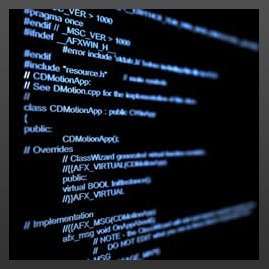Advanced Machine Learning
This specialization gives an introduction to deep learning, reinforcement learning, natural language understanding, computer vision and Bayesian methods. Top Kaggle machine learning practitioners and CERN scientists will share their experience of solving real-world problems and help you to fill the gaps between theory and practice. Upon completion of 7 courses you will be able to apply modern machine learning methods in enterprise and understand the caveats of real-world data and settings.
Критерий завершения
Получены сертификаты к курсам "With Honor"
-
Introduction to Deep Learning
The goal of this course is to give learners basic understanding of modern neural networks and their applications in computer vision and natural language understanding. The course starts with a recap of linear models and discussion of stochastic optimization methods that are crucial for training deep neural networks. Learners will study all popular building blocks of neural networks including fully connected layers, convolutional and recurrent layers. Learners will use these building blocks to define complex modern architectures in TensorFlow and Keras frameworks. In the course project learner will implement deep neural network for the task of image captioning which solves the problem of giving a text description for an input image.
Стоимость этапа — 3000 ₽
-
Introduction to optimization
-
Introduction to neural networks
-
Deep Learning for images
-
Unsupervised representation learning
-
Deep learning for sequences
-
Final Project
-
Receive a certificate with Honor
-
-
Natural Language Processing
This course covers a wide range of tasks in Natural Language Processing from basic to advanced: sentiment analysis, summarization, dialogue state tracking, to name a few. Upon completing, you will be able to recognize NLP tasks in your day-to-day work, propose approaches, and judge what techniques are likely to work well. The final project is devoted to one of the most hot topics in today’s NLP. You will build your own conversational chat-bot that will assist with search on StackOverflow website. The project will be based on practical assignments of the course, that will give you hands-on experience with such tasks as text classification, named entities recognition, and duplicates detection.
Throughout the lectures, we will aim at finding a balance between traditional and deep learning techniques in NLP and cover them in parallel. For example, we will discuss word alignment models in machine translation and see how similar it is to attention mechanism in encoder-decoder neural networks. Core techniques are not treated as black boxes. On the contrary, you will get in-depth understanding of what’s happening inside. To succeed in that, we expect your familiarity with the basics of linear algebra and probability theory, machine learning setup, and deep neural networks. Some materials are based on one-month-old papers and introduce you to the very state-of-the-art in NLP research.
Стоимость этапа — 3000 ₽
-
Intro and text classification
-
Language modeling and sequence tagging
-
Vector Space Models of Semantics
-
Sequence to sequence tasks
-
Dialog systems
-
Receive a certificate with Honor
-
-
Bayesian Methods for Machine Learning
Bayesian methods are used in lots of fields: from game development to drug discovery. They give superpowers to many machine learning algorithms: handling missing data, extracting much more information from small datasets. Bayesian methods also allow us to estimate uncertainty in predictions, which is a really desirable feature for fields like medicine. When Bayesian methods are applied to deep learning, it turns out that they allow you to compress your models 100 folds, and automatically tune hyperparametrs, saving your time and money. In six weeks we will discuss the basics of Bayesian methods: from how to define a probabilistic model to how to make predictions from it. We will see how one can fully automate this workflow and how to speed it up using some advanced techniques. We will also see applications of Bayesian methods to deep learning and how to generate new images with it. We will see how new drugs that cure severe diseases be found with Bayesian methods.
Стоимость этапа — 3000 ₽
-
Introduction to Bayesian methods & Conjugate priors
-
Expectation-Maximization algorithm
-
Variational Inference & Latent Dirichlet Allocation
-
Markov chain Monte Carlo
-
Variational Autoencoder
-
Gaussian processes & Bayesian optimization
-
Receive a certificate with Honor
-
-
Practical Reinforcement Learning
Some weird text about RL.
Стоимость этапа — 3000 ₽
-
Intro: why should i care?
-
At the heart of RL: Dynamic Programming
-
Model-free methods
-
Approximate Value Based Methods
-
Policy-based methods
-
Exploration
-
Receive a certificate with Honor
-
-
Deep Learning in Computer Vision
Deep learning added a huge boost to the already rapidly developing field of computer vision. With deep learning, a lot of new applications of computer vision techniques have been introduced and are now becoming parts of our everyday lives. These include face recognition and indexing, photo stylization or machine vision in self-driving cars. The goal of this course is to introduce students to computer vision, starting from basics and then turning to more modern deep learning models. We will cover both image and video recognition, including image classification and annotation, object recognition and image search, various object detection techniques, motion estimation, object tracking in video, human action recognition, and finally image stylization, editing and new image generation. In course project, students will learn how to build face recognition and manipulation system to understand the internal mechanics of this technology, probably the most renown and oftenly demonstrated in movies and TV-shows example of computer vision and AI.
Стоимость этапа — 3000 ₽
-
Introduction to image processing and computer vision
-
Convolutional features for visual recognition
-
Object detection
-
Object tracking and action recognition
-
Image segmentation and synthesis
-
Receive a certificate with Honor
-
- 1464
- 07 июня 2018, 17:14
Не пропустите новые записи!
Подпишитесь на цель и следите за ее достижением



